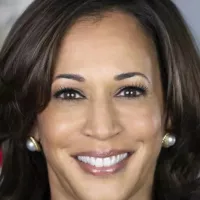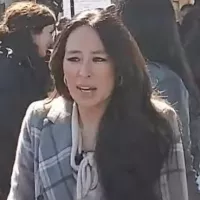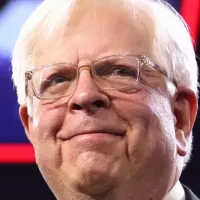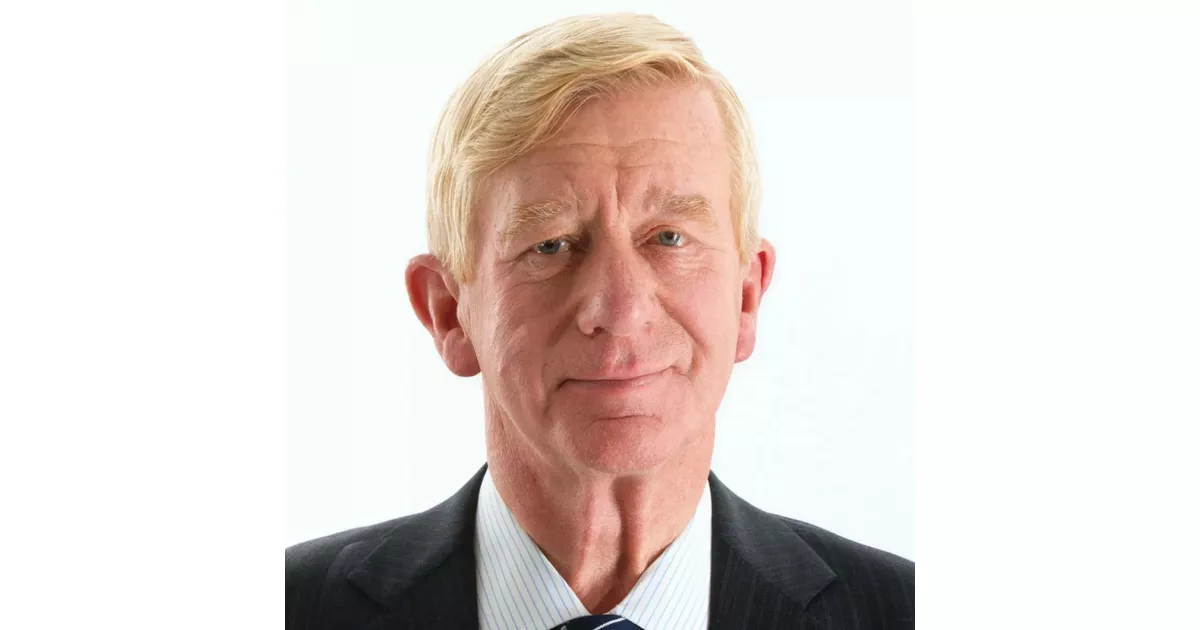How Bill Weld built a successful career. Explore key moments that defined the journey.
William Weld is an American attorney, businessman, author, and politician best known for serving as the 68th Governor of Massachusetts from 1991 to 1997. A Harvard graduate, he started as legal counsel for the House Judiciary Committee and later became the U.S. Attorney for Massachusetts and Assistant Attorney General for the Criminal Division. Weld prosecuted high-profile corruption cases before resigning due to an ethics scandal surrounding Attorney General Edwin Meese.
1970: No Republican Governor since 1970
Although Republicans made up under 14% of the Massachusetts electorate and a Republican had not won the gubernatorial election since 1970.
1974: Worked on Nixon Impeachment Inquiry
In 1974, Bill Weld worked as a junior counsel on the U.S. House Judiciary Committee's impeachment inquiry staff during the impeachment process against Richard Nixon.
1975: First Republican governor of Massachusetts since Francis W. Sargent left office in 1975.
In 1975, Francis W. Sargent left office, which led to Weld become the first Republican governor of Massachusetts.
1978: Unsuccessful Run for Attorney General
In 1978, Bill Weld ran unsuccessfully for Massachusetts Attorney General, losing to Democratic incumbent Francis X. Bellotti.
1978: Mary B. Newman chaired Weld's statewide campaign
In 1978, Mary Newman, launched me in politics by serving as chair of my statewide campaign in 1978.
1978: Among the first reasonably well-funded Republican Senate candidates in Massachusetts since Edward Brooke was unseated in 1978.
Weld, who was among the first reasonably well-funded Republican Senate candidates in Massachusetts since Edward Brooke was unseated in 1978.
1981: Appointed U.S. Attorney for Massachusetts
In 1981, Bill Weld was appointed as the U.S. Attorney for Massachusetts.
1983: U.S. Attorney's Office undefeated in corruption cases
In 1983, The Boston Globe noted that the U.S. Attorney's office, under Bill Weld, had not lost a single political corruption case.
1985: Prosecution of Financial Institutions
In 1985, The Boston Globe noted that Bill Weld was a visible figure in the prosecution of financial institutions as U.S. Attorney.
September 15, 1986: Appointed Head of Criminal Division
On September 15, 1986, Bill Weld was promoted to head of the Criminal Division of the Justice Department in Washington.
March 1988: Resigned from Justice Department
In March 1988, Bill Weld resigned from the Justice Department in protest of improper conduct by Attorney General Edwin Meese.
March 29, 1988: End of tenure as head of Criminal Division
Bill Weld served as head of the Criminal Division until March 29, 1988
July 1988: Testified Against Edwin Meese
In July 1988, Bill Weld testified before Congress in favor of a potential prosecution of Edwin Meese.
1988: Joined Hale and Dorr
In 1988, Bill Weld became a senior partner at Hale and Dorr.
1988: Justice Department Review of Kennedy and King Assassination Investigations
In 1988, Bill Weld wrote a memorandum formally reviewing the recommendations of the House Select Committee on Assassinations final report regarding the assassinations of John F. Kennedy and Martin Luther King Jr., concluding no persuasive evidence supported a conspiracy theory in either assassination.
November 6, 1990: Elected Governor of Massachusetts
On November 6, 1990, Bill Weld was elected as the 68th Governor of Massachusetts.
1990: End of tenure at Hale and Dorr
Bill Weld's tenure at Hale and Dorr ended in 1990
1990: Announced Candidacy for Governor
In 1990, Bill Weld announced his candidacy for Governor of Massachusetts.
1990: Elected Governor of Massachusetts
In 1990, Bill Weld was elected as the Governor of Massachusetts.
1991: Became Governor of Massachusetts
In 1991, Bill Weld became the 68th Governor of Massachusetts, marking a significant milestone in his career.
1991: Unemployment rate started at 9.6%
The state's unemployment rate was 9.6% in 1991.
1992: Pat Buchanan won a delegate while running against an incumbent president.
He won his first and only delegate of the primaries in the Iowa caucus in February, making him the first Republican since Pat Buchanan in 1992 to win a delegate while running against an incumbent president.
1992: Signed executive order to recognize domestic partnership rights for same-sex couples.
In 1992, he signed an executive order to recognize domestic partnership rights for same-sex couples
1993: Signed into law legislation protecting the rights of gay students
In 1993, he signed into law legislation protecting the rights of gay students
1994: Re-elected Governor of Massachusetts
In 1994, Bill Weld was re-elected as Governor of Massachusetts by the largest margin of victory in the state's history.
1994: Re-election as Governor
In 1994, Bill Weld won reelection as governor with 71% of the vote, carrying all but five towns in Massachusetts.
1994: Business climate rating increased
In 1994, a survey of chief executives showed that 83% rated the state's business climate as good or excellent, up from 33% at the beginning of Weld's term.
November 30, 1995: Announced Senate Candidacy
On November 30, 1995, Bill Weld announced that he would challenge incumbent Democratic Senator John Kerry in the 1996 election.
1996: Lost Senate Election
In 1996, Bill Weld was the Republican nominee for the United States Senate in Massachusetts, but lost to Democratic incumbent John Kerry.
1996: Brief Presidential Consideration
In 1996, following his landslide victory as governor, Bill Weld briefly considered running for the presidency.
1996: Challenged John Kerry in the 1996 election
On November 30, 1995, Bill Weld announced that he would challenge incumbent Democratic Senator John Kerry in the 1996 election.
1996: Best for any third-party ticket since 1996 with Ross Perot's Reform Party.
They received nearly 4.5 million votes, the highest number for a Libertarian ticket, and the best for any third-party ticket since 1996 with Ross Perot's Reform Party.
July 1997: Nomination Stalled
In July 1997, Bill Weld's nomination to become United States Ambassador to Mexico by President Bill Clinton stalled after Jesse Helms refused to hold a hearing on the nomination.
July 29, 1997: Resigned Governorship
On July 29, 1997, Bill Weld resigned the governorship to campaign for the ambassadorship to Mexico.
September 15, 1997: Withdrew Nomination
On September 15, 1997, after a six-week battle, Bill Weld conceded defeat and withdrew his nomination for ambassadorship.
1997: Resigned as Governor to Pursue Ambassadorship
In 1997, Bill Weld resigned as governor to focus on his nomination by President Bill Clinton to serve as United States Ambassador to Mexico. However, the nomination was later withdrawn.
1997: Resigned as Governor
In 1997, Bill Weld resigned from his position as Governor of Massachusetts to focus on his nomination as United States Ambassador to Mexico.
December 2000: Joined Leeds Equity Partners
In December 2000, it was announced that Bill Weld would join Leeds Equity Partners, to be renamed Leeds Weld & Co., as a general partner.
2000: Speculation of a Presidential Run
In 2000, there was speculation that Bill Weld's actions, such as attacking Jesse Helms, were a way to position himself for a potential run for president.
January 1, 2001: Effective Date with Leeds Weld & Co.
On January 1, 2001, Bill Weld's role as general partner at Leeds Weld & Co. became effective.
April 24, 2005: Talks to Run for Governor
On April 24, 2005, it was reported that Bill Weld was in talks with the New York Republicans to run for Governor of New York in 2006.
August 19, 2005: Announced Candidacy
On August 19, 2005, Bill Weld officially announced his candidacy for Governor of New York.
October 2005: End of Decker College Term
In October 2005, Bill Weld's term as chief executive of Decker College ended as the college was closing under bankruptcy protection.
December 2005: Received Backing
In December 2005, Bill Weld received the backing of the Republican county chairs of New York State.
2005: Reduced Role
In 2005, Weld reduced his role at Leeds Weld & Co. to a senior advisor while considering a run for New York governor.
April 29, 2006: Libertarian Nomination
On April 29, 2006, Bill Weld received the Libertarian Party's nomination for Governor of New York.
June 1, 2006: Faso endorsed over Weld
On June 1, 2006, the Republican State Convention voted 61% to 39% to endorse Faso over Weld.
2006: Run for Governor
Bill Weld run for Governor of New York in 2006.
2006: Rejoined McDermott Will & Emery
In 2006, Bill Weld rejoined McDermott Will & Emery.
2006: Withdrew from NY gubernatorial race
In 2006, Bill Weld sought the Republican nomination for Governor of New York but withdrew from the race when the party endorsed John Faso.
2006: Governor Race Controversy
In 2006, the matter of Decker College closing under bankruptcy protection followed Weld into the race for Governor of New York.
January 8, 2007: Endorsed Mitt Romney
On January 8, 2007, Bill Weld publicly endorsed former Massachusetts Governor Mitt Romney for the presidency.
2008: Admitted to the New York Bar
In 2008, Bill Weld was admitted to the bar in New York.
2011: End Lobbyist Work
Bill Weld ended work as a lobbyist in 2011.
2012: Moved to Mintz, Levin
In 2012, Bill Weld moved to the Boston law firm of Mintz, Levin, Cohn, Ferris, Glovsky, and Popeo.
February 2016: Endorsed John Kasich
In February 2016, Bill Weld endorsed Ohio Governor John Kasich for the Republican presidential nomination.
May 17, 2016: Selection as Running Mate
On May 17, 2016, Gary Johnson announced his selection of Bill Weld to be his choice for running mate.
2016: Joined Liberty Tour
In 2016, Bill Weld joined Our America Initiative's Liberty Tour, speaking alongside other libertarian leaders and activists.
2016: Joined Libertarian Party as VP Nominee
In 2016, Bill Weld left the Republican Party and became the Libertarian Party's vice-presidential running mate with Gary Johnson.
2017: Appeared at Libertarian Party Conventions
Throughout 2017, Bill Weld appeared at several state Libertarian Party conventions.
2018: Appeared at Libertarian Party Conventions
Throughout 2018, Bill Weld appeared at several state Libertarian Party conventions.
January 2019: Changed Party Affiliation
In January 2019, Bill Weld changed his party affiliation back to Republican, in preparation for his presidential run as a Republican.
January 17, 2019: Rejoined the Republican Party
On January 17, 2019, Bill Weld rejoined the Republican Party.
February 14, 2019: Launched Exploratory Committee
On February 14, 2019, Bill Weld launched a presidential exploratory committee for the 2020 Republican primary.
April 15, 2019: Announced Candidacy
On April 15, 2019, Bill Weld formally announced his candidacy for President of the United States.
April 2019: Announced Candidacy Against Trump
In April 2019, Bill Weld announced that he would challenge President Donald Trump in the 2020 Republican primaries.
March 18, 2020: Suspended Presidential Campaign
On March 18, 2020, Bill Weld suspended his campaign for the Republican presidential nomination.
2020: Republican Primary
Bill Weld launched a presidential exploratory committee for the 2020 Republican primary, against incumbent Republican president Donald Trump.
Mentioned in this timeline

Donald John Trump is an American politician media personality and...

Bill Clinton the nd U S President - served as...

Martin Luther King Jr was a pivotal leader in the...

John F Kennedy JFK was the th U S President...

Kamala Harris is an American politician and attorney She served...

Joe Biden is an American politician who served as the...
Trending

29 minutes ago Jade Cargill defends WWE Women's Title against Michin; appears on WWE Raw.

29 minutes ago Chip & Joanna Gaines' son Duke's transformation, Martha Stewart Rugs, Joanna Gaines rug sale.
30 minutes ago Dan Crenshaw faces primary challenge in Texas without Trump's endorsement, races heat up.
30 minutes ago Authorities Respond to Violence in Cancún and Tulum, Quintana Roo Security on Alert.

30 minutes ago Pelicans defeat 76ers as Tyrese Maxey addresses the team's four-game losing streak.

1 hour ago Dennis Prager Discusses Morality, God and Personal Opinion in Recent Articles
Popular

Jesse Jackson is an American civil rights activist politician and...

Barack Obama the th U S President - was the...

Bernie Sanders is a prominent American politician currently serving as...

Michael Joseph Jackson the King of Pop was a highly...
The Winter Olympic Games a major international multi-sport event held...
WWE Raw a professional wrestling television program by WWE airs...
